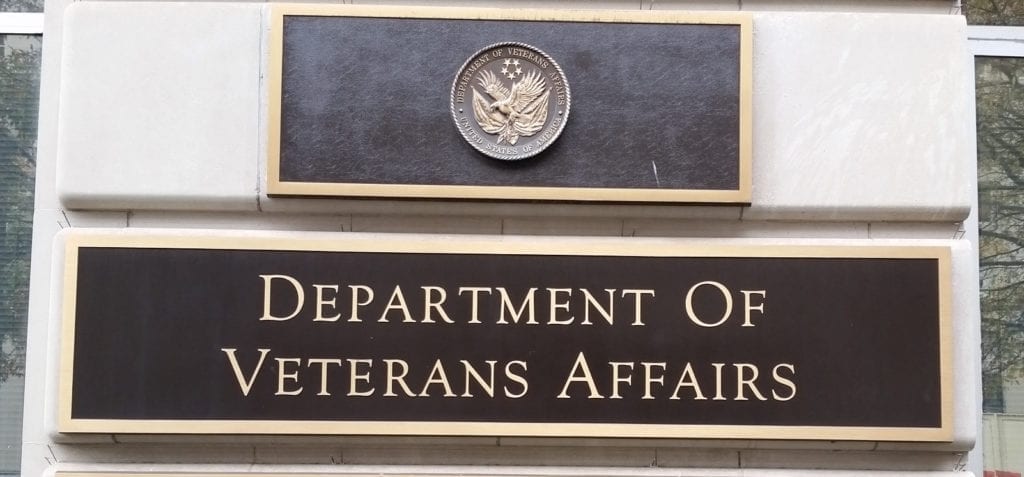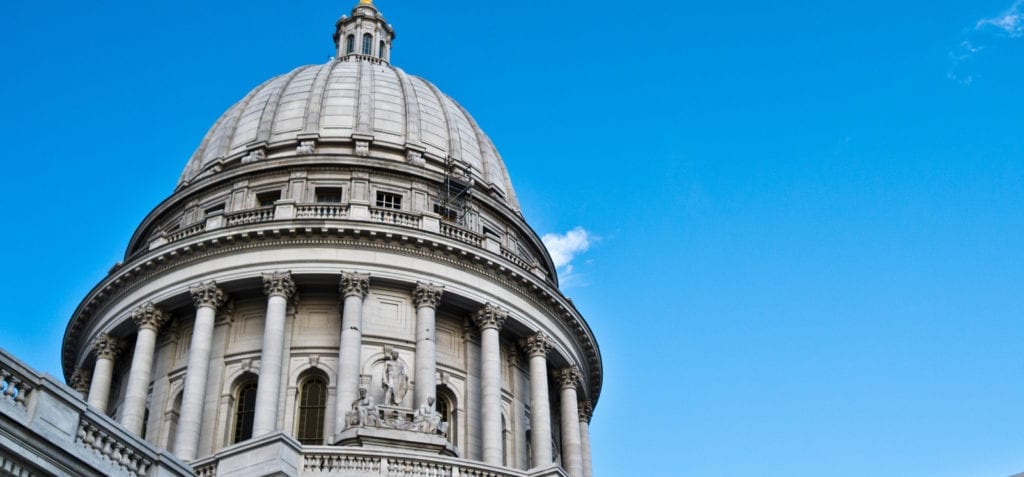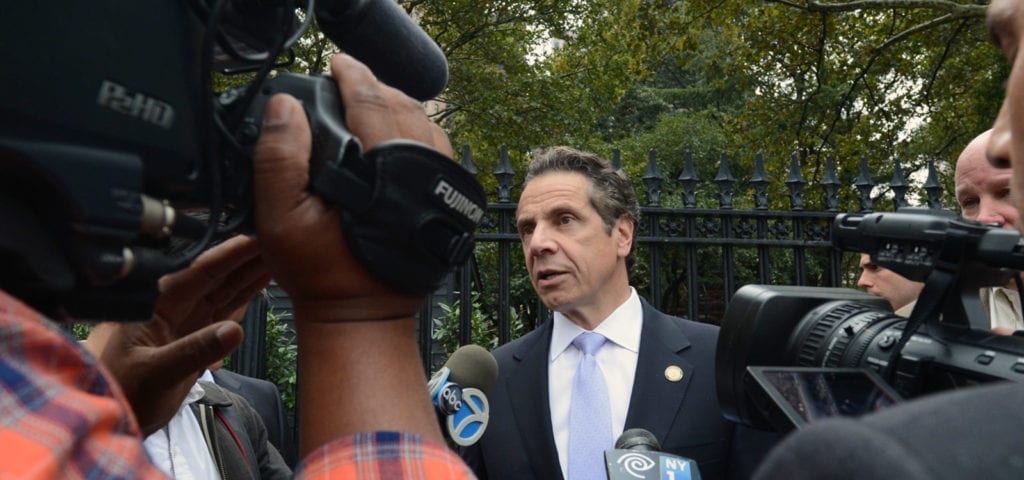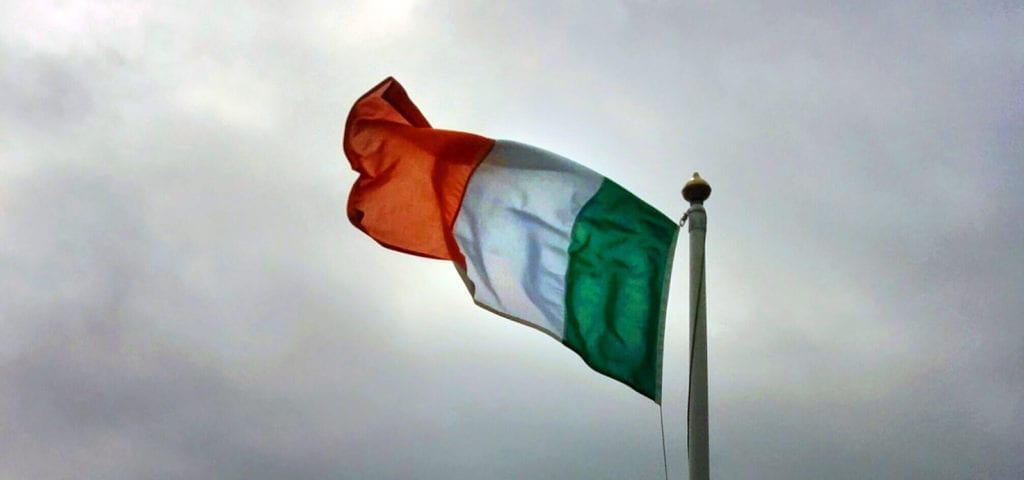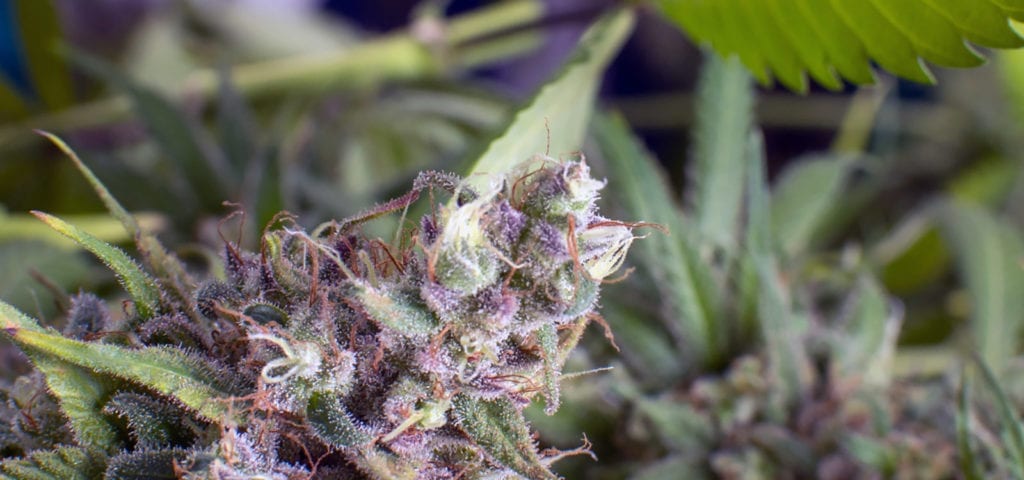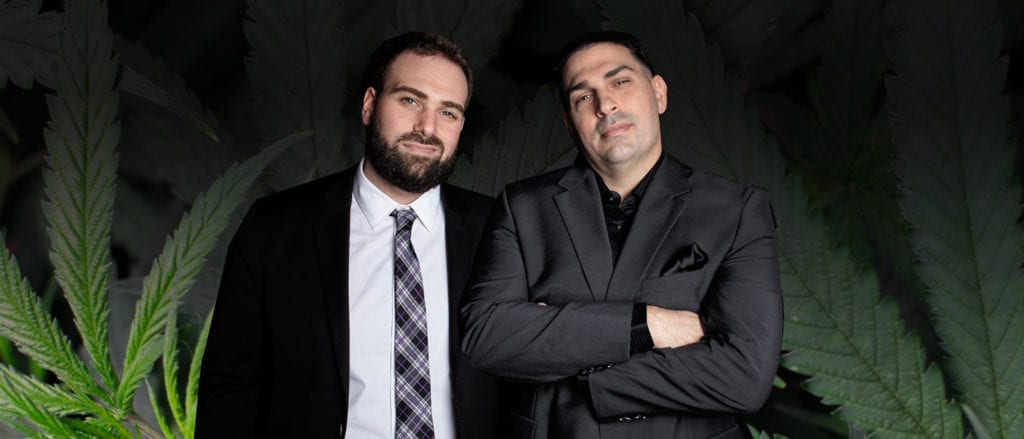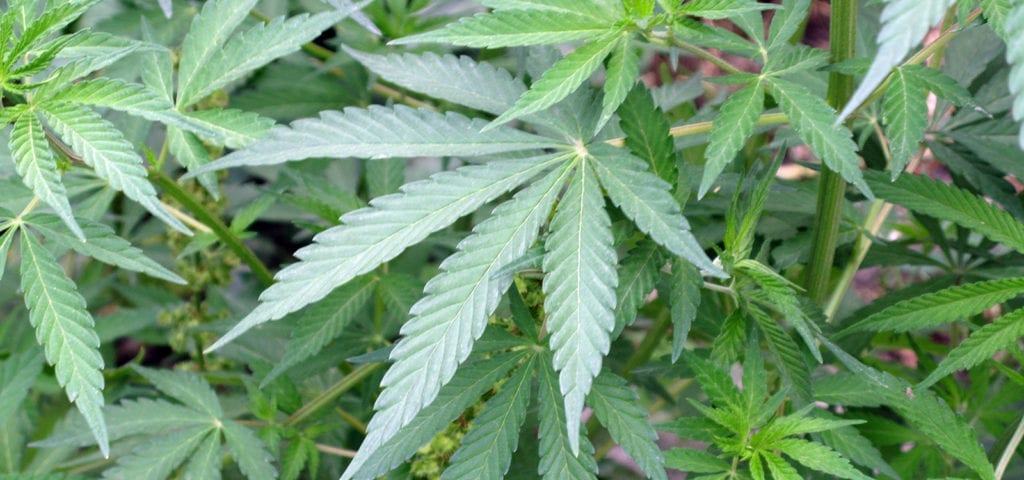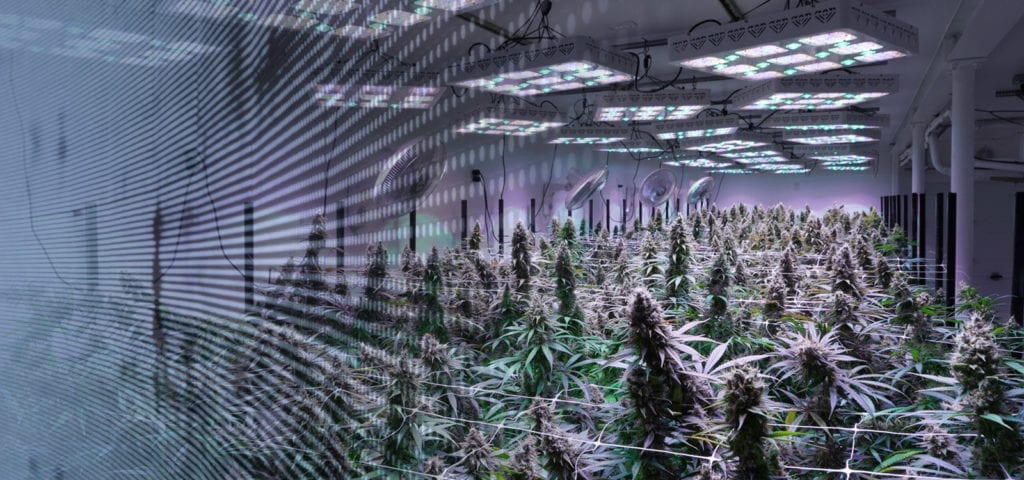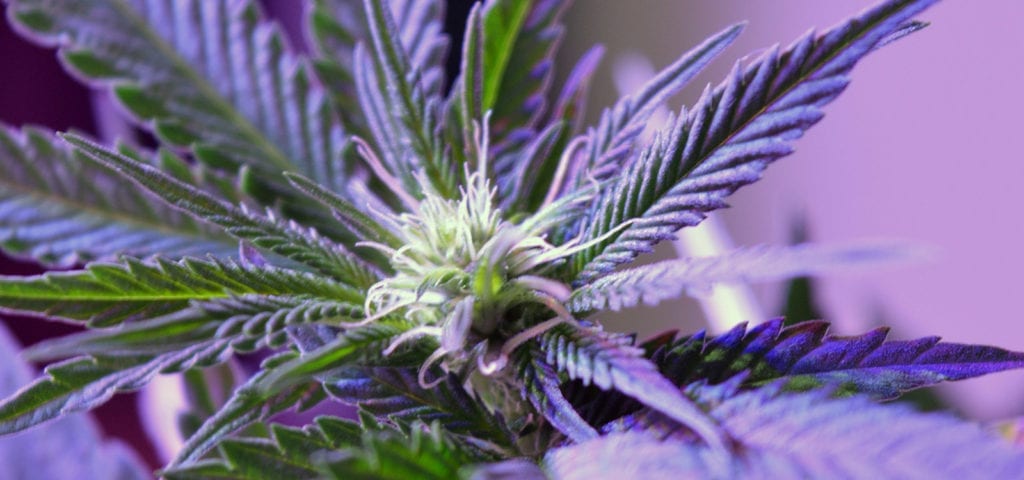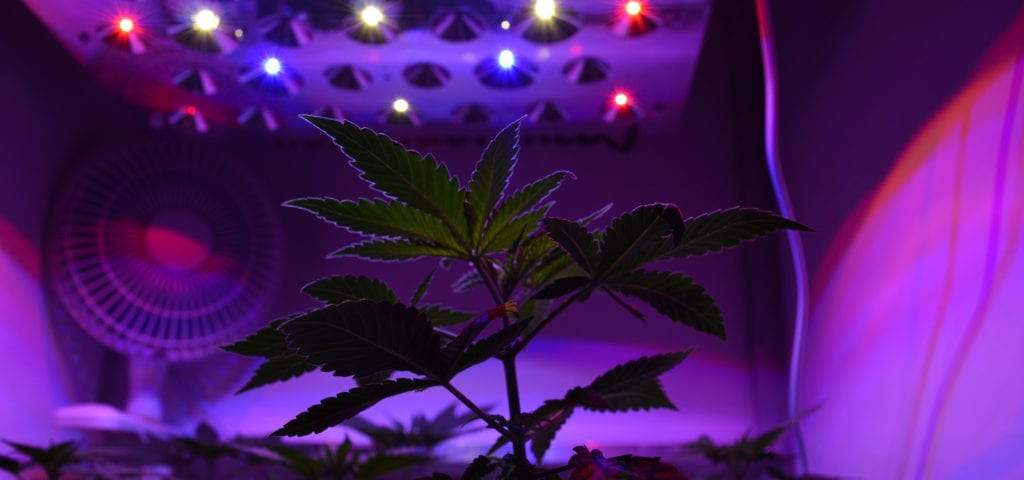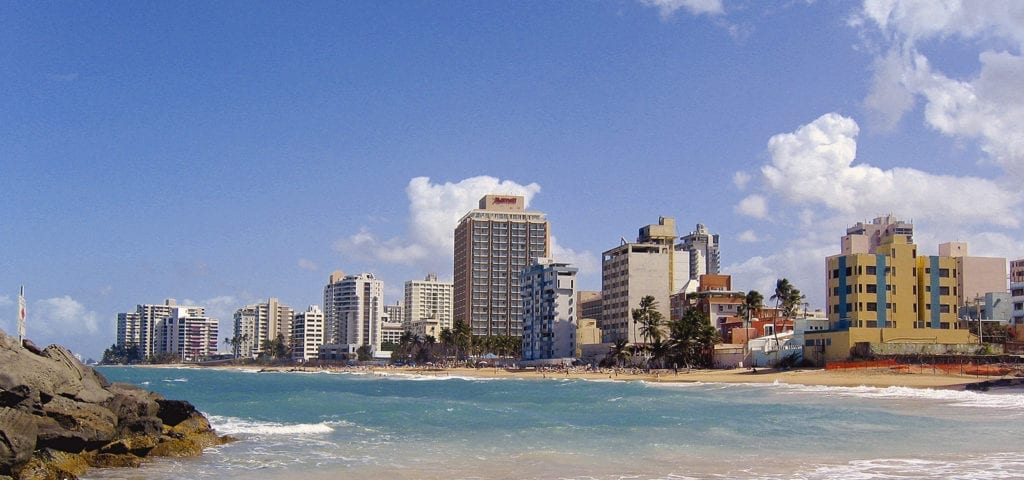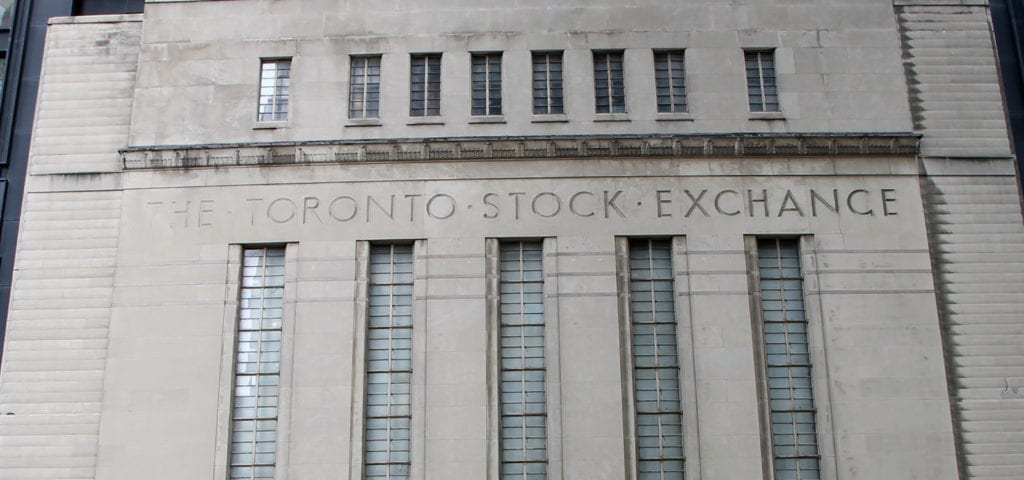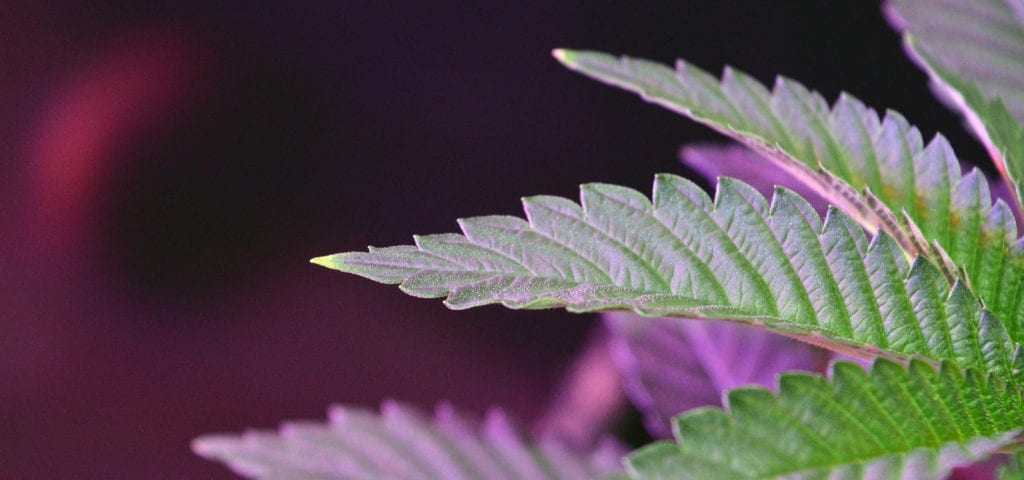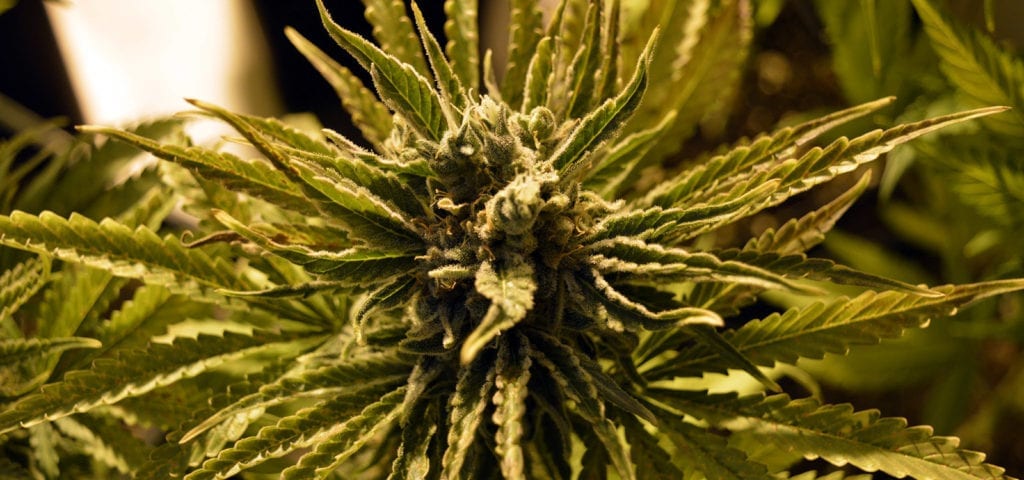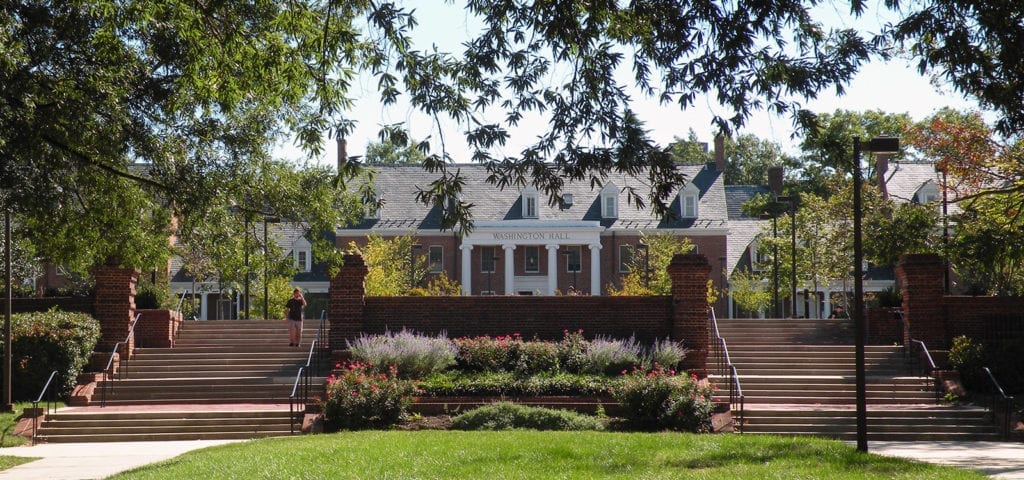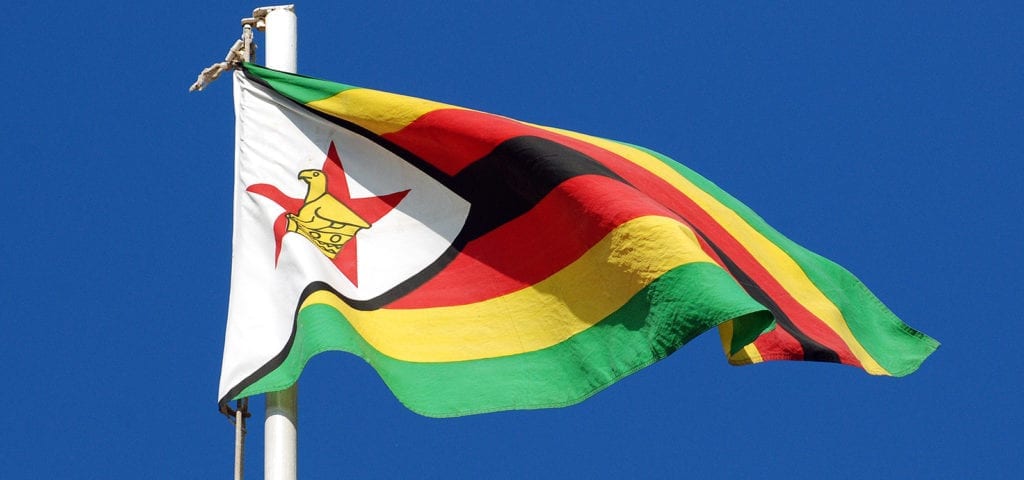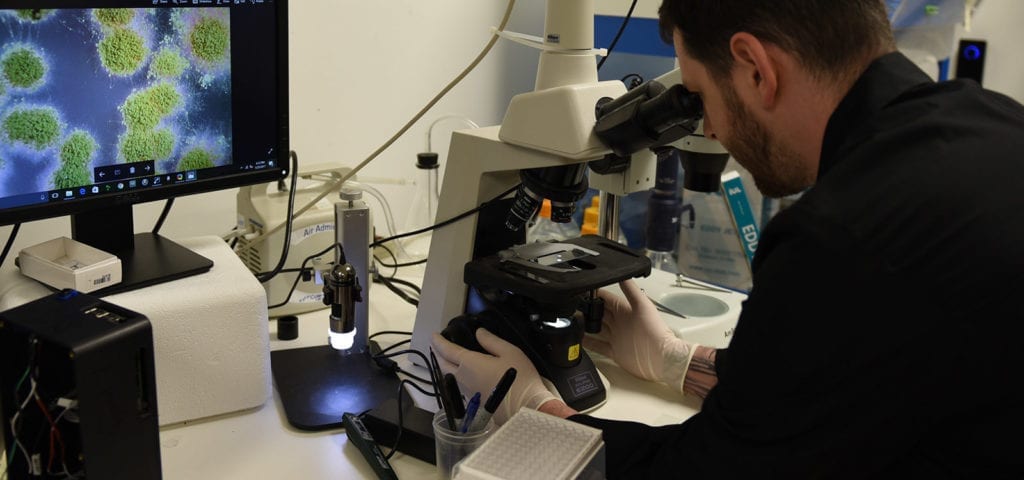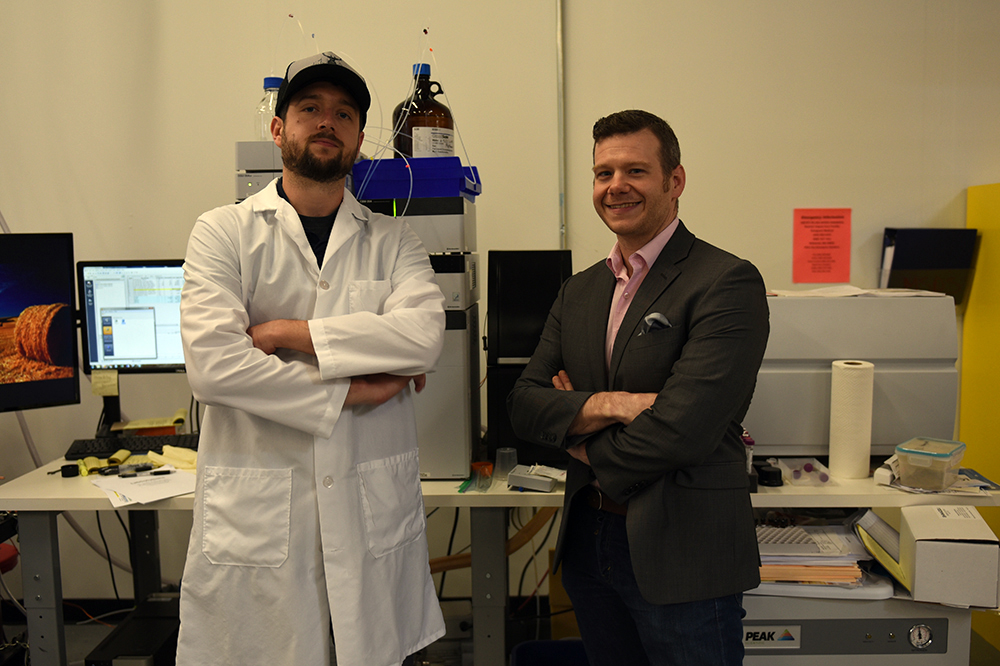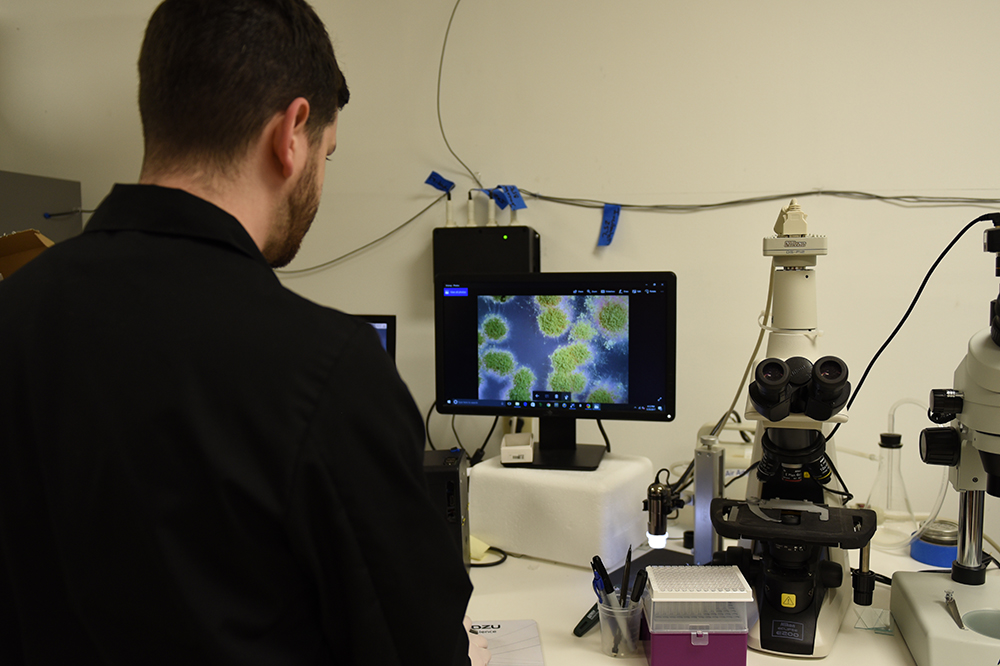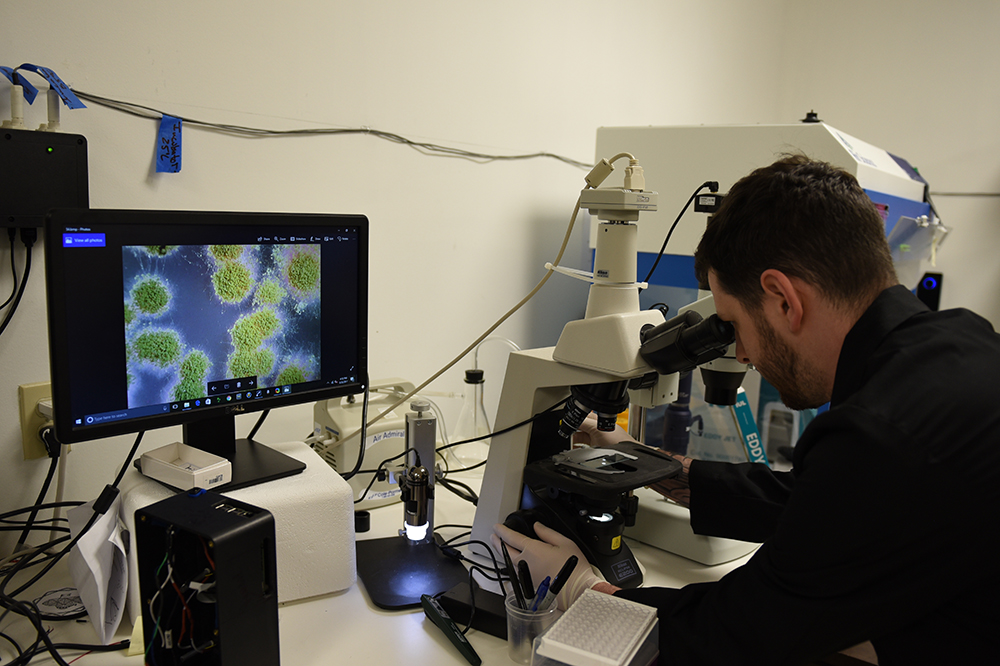Stephen Gold and Andy Yashar are co-founders of The Daily Leaf, a technology company that has partnered with dispensaries to find and list the best cannabis deals throughout Oregon cities — with plans to expand to Seattle, Las Vegas, and beyond.
In this episode of the Ganjapreneur.com podcast, Stephen and Andy join host TG Branfalt to talk about the technology aspect of the cannabis space, launching a tech startup on a minimal budget, the importance of creating and maintaining a company image, and how — by focusing the efforts of a small, dedicated team — they have been able to create a truly effective service that benefits cannabis companies and consumers around their state.
Listen to the interview through the player below, or scroll down to read a full transcript of this week’s Ganjapreneur.com podcast episode.
Listen to the podcast:
Read the transcript:
TG Branfalt: Hey there, I’m your host TG Branfalt, and you’re listening to the Ganjapreneur.com podcast, where we try to bring you actionable information and normalize cannabis through the stories of Ganjapreneurs, activists and industry stakeholders. Today I’m joined by Stephen Gold and Andy Yashar, founders of The Daily Leaf, winners of the Best Tech Product at the 2016 Dope Magazine Industry Awards. Welcome to the show guys, and congratulations on that.
Stephen Gold: Oh, thank you very much. An honor to be here, thanks for having us on. Steve Gold here. We actually won 2016 and 2017, Best Tech Product at the Dope Industry Awards. So here in Oregon we’re definitely making strides to become a buzz, to help people around town find information about what’s going on with deals, and all that other good stuff.
TG Branfalt: I didn’t know about the 2017, so double congratulations guys, that’s really, really good stuff, that’s incredible. Before we get into the product though, I want to talk to you guys about what you did before you got into the cannabis industry, so if you guys each want to tell me what you did, and how’d you end up here?
Andy Yashar: This is Andy. I was in web development, and really helping dispensaries back in the day, before recreational was even a thought, of doing internet marketing and getting out there. Building a web presence, and showing people what they had in stock, where they could find them, and a little bit about the background of each person that worked there.
Stephen Gold: Myself, I came from the fashion industry. I was working in New York City, and I saw the opportunity for the recreational market to explode. I had always had ailments that lent itself to marijuana, even though I wasn’t a medical marijuana patient. So I came out to Oregon to get involved in the scene, to see what was going on, to get my medical marijuana card, and to really engulf myself in what was a blossoming industry, it still is. About two and a half years ago along the way, I met Andy and we joined forces to bring The Daily Leaf to life.
TG Branfalt: That’s one of the most interesting career jumps that I’ve gotten, is from the fashion industry to the cannabis industry. Could you briefly tell me some of the similarities between the two, how you brought over that experience to this space?
Stephen Gold: Sure, so I’d say the personnel, both industries are absolutely crazy. The people that work in it, we all work in the fashion industry, everything was last minute. I was getting called literally five minutes, the day before something had to go into production, “Steven, we need you.” Here in marijuana it’s kind of similar, we’re all working and we’re all trying to catch up, and work these extremely busy schedules, and work in different things. So in that essence things are the same with the personnel, it’s always crazy. And then also I’d say that one of the things that helped us in getting our name and getting ourself in the foot was my sense for design aesthetic.
Working in the fashion industry, we had attention to detail, wanting to make sure things were beautifully presented, because the end product was putting them on garments to go out for the world to buy, so you couldn’t have any mishaps. And just my eye for that has helped us craft this into something that Andy and I have been able to build into something much larger than we even thought when we first met each other.
TG Branfalt: So now, why don’t you tell me more about The Daily Leaf? If you look at the website, it is really nicely designed. It’s very use friendly, and so I’m assuming that that’s really an amalgamation of both of yours backgrounds kind of meeting and developing this, right?
Andy Yashar: Yeah, this is Andy, I would say that Steven and I work really good as a team. I tend to work heavily on the back end, making sure that people can find us when they search for certain products and certain search phrases on the internet, and Steven really brings a good eye for colors and the way that things should be presented, so it was a good marriage. Essentially, Steven really works on the front end, and I really work on the back end.
TG Branfalt: Describe to me what your service provides, and how dispensaries benefit from working with you guys.
Stephen Gold: Sure, so what we really set out to do when we first started The Daily Leaf, was to create a platform that helped dispensaries advertise deals, specifically one focal point in getting information out about what the best products are out there, and how cheap you can get them. Not necessarily saying that everything on The Daily Leaf has to be a $5 gram, and a $15-$20 eighth, but we found that people are always looking for deals. Furthermore, people are looking to find out what a product looks like before they get into the store. So by simply advertising deals and offering the consumer a way to see that flower before they actually drive 20, 30 minutes to a store, we’re finding that we’re able to drive people from all across town to a dispensary.
So while dispensaries will use other marketing/advertising platforms to help them advertise and have people find out where they are, and are location-based, The Daily Leaf is strictly product-driven. So it allows each dispenser an equal playing field to kind of say, “Hey, we have this product, are you interested in it? This is what it looks like,” and we’re able to drive people from … If you live 30 minutes away from a town, we’re getting people that are driving to those areas to go purchase it, simply based on the product and the image. Furthermore, we’ve really built a niche for ourselves through our newsletter. We’re currently reaching about 10,000 people in Oregon and surrounding areas that are looking for deals, emailed to them.
So what we do, a couple times a week we’ll curate all of our deals that come onto our platform, and we’ll push them out. People can literally go on there, the easiest way to sign up for that newsletter is to just go to our website, Dailyleafdeals.com, and then literally a popup will come up and say, “Hey, do you want to get all the latest deals?” You put your email in there, and you get the information. We found that that, directly to people, and essentially just in their inboxes is the best way for us to differentiate ourselves, and to get information out quickly and easily.
TG Branfalt: You started as this Groupon for cannabis, and the current product, now you guys provide information on, among other things, product launches, events. Can you guys explain to me when you decided to evolve your service to these other aspects?
Andy Yashar: This is Andy. I used to do huge promotional events for larger corporations. Maxim Magazine, Red Bull, Coors Light, back when I was just getting out of college, so I have a lot of event experience. When we actually launched The Daily Leaf, we threw a huge event, and we gave away probably five to six thousand dollars worth of marijuana products. Not stuff containing marijuana, but accessories, essentially, and we had a huge response from it. So fast-forward six months later, we did a huge 4/20 party where we had over 1000 people show up. It’s something that’s not foreign to us, to do events, but it’s a great way for us to showcase what The Daily Leaf is, and what we do on a day to day basis, and present that to the customers directly without … Essentially making them go to the internet and finding us, we can present that to them face to face, and show it to them live.
Stephen Gold: And then beyond that, as we were building our reputation in town, and as dispensaries were using our platform, consumers were using it, we found that there was a lot more people out there. A lot more brands, producers, processors, wholesalers that started reaching out to us and saying, “Hey, your platform’s amazing, how do we work with you, what do we do?” So we had to integrate it beyond on the web, where first we had just the deals, and just the abilities for the dispensaries to log in, and all of their specials. Then we decided, since we had a bunch of brands wanting to get involved, we developed these micro-sites through The Daily Leaf. We already had a name that was building a presence, and a lot of brands don’t necessarily have that footing online.
Us being a credible source allows these brands to get a foothold on the internet. So by allowing brands to 1) just advertise on The Daily Leaf, and to have their own dedicated page, it gives them an area to further push and get information online, and also gives our consumers a way to learn the back end of what these brands are all about. So just giving people content about, “If you’re a Co2 company, how do you make your oil?” There’s so many different techniques out there, and the elementary user who’s maybe just going to a dispensary the first time doesn’t even know the different methods. They don’t know the difference between shatter or oil, or BHO over Co2 vs. RSO, all these different terms that, being in the cannabis community you know, but the entry level user doesn’t. We wanted to give them a back end into, so if you like the brand, Truly Pure, a CO2 company here in Oregon, if you like these guys you can see a back end video about their process to making their oil, from the trim down to when it gets into a cartridge, and into your hand.
So we found that that information was 1) valuable for the brand, but also valuable for the consumer, to learn and educate themselves about what’s really going on.
TG Branfalt: How important has the multimedia been for your engagement? Not just with the YouTube videos, but also the images that are used to promote a product on your website?
Andy Yashar: This is Andy. I think that being as interactive as possible in this day and age is necessary for any business to survive. I think that a lot of people that are in the 24 to 35 year old rage spend a good time on their cell phones each and every day, so the more content that we can produce, is another customer that we have the potential to land as a lifelong user. So I think as much content as we can push out, the better it’s going to be for us.
Stephen Gold: I think it’s everything. Going back to my first point, we created The Daily Leaf because we wanted a place to find out what something looked like, seeing the picture before you even went to the store. So defining that, in order to drive a customer to go to a shop, you need to show them what they want to purchase before getting there. So that media is definitely very important, it drives our sales. That’s one of the things where we coach our dispensaries that we work with, because you can tell if a dispensary puts up a product on The Daily Leaf, then they don’t really take much time. Maybe they don’t take the best picture, you can’t really make out any detail, and it kind of looks sketchy. More than likely, the customer’s not going to want to click on that ad and see what that deal’s about.
But then if you have a dispensary that takes a few minutes to take a nice picture, curates a deal really nicely, you’ll see that that deal gets a lot more play. So yeah, it means everything to have great media.
TG Branfalt: So I want to talk to you guys a bit about the experience as a startup. But before we do that, we’ve got to take a short break. This is the Ganjapreneur.com podcast, I’m TG Branfalt.
This episode of the Ganjapreneur.com podcast is made possible by Name.com, a global provider of domain name, web hosting, and email services. Every successful cannabis business an online presence, and every successful online presence begins with a domain. From your website to your email address, a good domain is easy for your customers to remember. It looks nice on a business card or billboard, and it reflects the true identity of the project it represents. It’s important to reserve your domain early on when you are starting your business, as you may find that the .com address for your preferred brand or concept has already been taken. If somebody has already purchased the ideal .com for your business, they might be willing to sell it. But if they aren’t, you may have to get creative with one of the new alternate domain extensions, such as .co, .club, .shop, or even .farm. Reserve your domain name today, at Name.com/ganjapreneur.
If you are a domain name investor or venture capital firm interested in acquiring or advertising premium cannabis domains, go to the Ganjapreneur domain market to browse a wide variety of names, including Strains.com, Cannabismedia.com, Mj.com, and countless others. Discover branding opportunities for your next startup, and learn about listing your premium domain names for sale, at Ganjapreneur.com/domains, sponsored by Name.com.
TG Branfalt: Welcome back to the Ganjapreneur.com podcast, I’m your host TG Branfalt here with Stephen Gold and Andy Yashar, founders of The Daily Leaf. So tell me about the startup experience in the cannabis space, specifically for your tech product. How’d you find funding?
Andy Yashar: Well, I had some money saved up, so I spent … I wouldn’t say a large amount of money, because I already knew what I was doing, but I think that we spent, I’ll say a few thousand dollars getting business going, and really working, and trying to save as much money along the way as possible.
Stephen Gold: Yeah, we actually haven’t raised any money to date yet, we have done this all just through ourselves, and working lean. That’s been real important to us. Having a team that’s very dedicated, Andy and myself both wearing many hats, working many hours to just nail this down and build a product that actually has traction. Because for us it’s everything, so we don’t want to go and get funding too soon and give away too much booty, we want to make sure that we’re able to keep our … There are partners out there for us, and we’re starting to get down that line where we’re about to get funding to push ourselves into new markets.
But it’s been very hard the last year and a half, two years, working towards this so that we can be in this position where we now have a product that is somewhat successful here in Oregon, we have built traction, and we have been able to do this really on a shoestring budget, I’m telling you.
TG Branfalt: What about the initial reviews and reaction? You start with three grand, you have this idea … So what was the initial response, and what has your growth been like thus far?
Andy Yashar: Starting out was tough, because I say that the tech part of marijuana is getting flooded with more and more people trying to join every single day. So essentially what we wanted to do, is we set out to create something different. We wanted to be really separated from everybody else and really be for the people. I think that that’s one our biggest advantages, is that people really know that we’re looking out for them, as far as presenting the product, making sure that they know what they’re buying before they get to the store, finding them the best deals. Not only do we encourage dispensaries to post deals, but we’re going out, we’re negotiating deals for our users. We’re meeting with brands and meeting with dispensaries, and we’re actually negotiating deals between the two so we can actually have a really good value for people that visit our site.
Stephen Gold: To get started, what we really did to build our traction was just utilize our core skill set. So Andy with SEO and being able to get the website to be where we’re searchable online. Myself with building a buzz on social media, and getting people to think, again going back to the design aesthetic of the fashion industry. Our Instagram account and what we put out, it looked like we might have had a staff of ten to 15 people, when there was just two of us sitting in the office. So by portraying an image that we were bigger than what we are, allowed people to really gravitate and really get behind it. Furthermore, we had those events that we did that Andy touched on, where we brought the industry together, and we were able to piggyback off of other situations where we can build a crowd.
Our first event, we weren’t even launched yet, because we launched on Green Friday in 2015, November 25th, and this event was in October, and we had people lined up around the block to get in to get that free swag that Andy was talking about, where we were giving away five, $6000 worth of products. I’d say it was a combination of getting into the industry at the right time where there wasn’t anyone like us. There wasn’t anything going on, no-one was able to capture that buzz and be in town, and be able to show face, and really ignite the industry and get people behind them. It was just by stance of luck that we were able to do this at that current time. Because right now, if we’re looking at the industry right now and how it looks, it’s completely different. Those events that we had are somewhat in Oregon not maybe so legal anymore.
The rules had changed when the regulations came in, and a lot of things changed up. Because we entered the market before the recreational market hit yet, it was still just medical. So we got in right at the right time.
TG Branfalt: What’s your growth been like with the migration to recreational?
Andy Yashar: We’re gaining 20% new users every single month, so this last 4/20, we did triple the amount of traffic that we did they year prior, because of the fact that our website’s really ranking really well, and we had probably 2-300 different types of deals on our website for 4/20. We got picked up by a lot of media outlets, and we had a huge buzz going into 4/20, so it was really beneficial to capitalize on the market and make sure that we had everything, and we were the one-stop source for everything 4/20 in Portland.
TG Branfalt: Moving forward, do you guys have plans to expand into other existing or newly legal markets?
Andy Yashar: Yeah, so we are formalizing a plan right now to where we’re going to be going into Las Vegas, which I think our deals platform is really what people look for when they visit Las Vegas, is to save as much money as possible. So Las Vegas is a huge market for us, we plan on going to LA, San Francisco. I think that Arizona, as soon as they are a little bit more open to recreational marijuana, is going to be another huge market for us. I have clients that I do website work for down there currently, and they’re telling me that they’re ripe for The Daily Leaf, that people would drive 45 minutes just to save $15 on some shatter. So I really believe that our expansion is going to be something that’s going to be very popular throughout different cities, even though there is current existing tech in those markets.
We plan on rolling out an app that’s going to be all deal-based. We’re also going to have featured brands on there, so people can read about all of their favorite products, find out where they can buy them at, and how they can save money on it.
TG Branfalt: So why the decision to focus on cities instead of the state as a whole?
Andy Yashar: We really believe that really dense markets are really beneficial for us, and word spreads. So when we go to a huge metropolitan area and we do really well there, the outer lying cities really pick up on it, and we start to expand slowly to those areas. If we started a huge reach and we focused on an entire state instead of a city, we would be overwhelmed with what to write about, who to cover, what video content to generate first. If we focus on the cities and really build that network in, then the smaller cities are a lot easier to penetrate.
TG Branfalt: So far, what are some of the barriers to entry in some of these markets for your product specifically?
Stephen Gold: Barriers to entry,
Andy Yashar: I would say manpower right now. If we had a larger staff, which we’re hiring very, very slowly, and we’re being very meticulous on who we pick, I think that as we grow our staff it’ll be easier to actually go into these markets and have a very good presence.
Stephen Gold: Yeah, it’s say it’s a double edged sword. We touched on not wanting to get funding too soon, which we strongly stand behind, but then again you don’t have the large marketing dollars that some of our competitors would have, and do have. So when you go into new markets and you have a small staff, being able to show value to people who don’t know you from anybody … Because you talk to a dispensary owner, and they’re probably getting 50, 70 calls a day from people trying to sell them something. So that’s why building a buzz was and is so important for us. Because if we have a buzz, if we win those awards and people are talking about us, and we’re doing things differently, then that word will spread out. For example, we’re based in Portland, surrounding towns of Salem, of Eugene, of Bend. Those towns are starting to hear about The Daily Leaf, we’re working more and more into those towns and building a presence in the whole state of Oregon from the buzz we’re able to build just in Portland.
Andy Yashar: I’d say right about now, 20% of the dispensaries in Oregon are our clients. So we really want to build that up to the 50% mark, and then we’re going to move into Washington and really build a huge presence down there. I think that if we really conquer our home territory first, and really make sure that we have a very, very good network of people, then going into say, a Las Vegas and bringing testimonials with us, and letting them know that, “This is what our clients are saying,” that’s going to give us a little bit more credibility when we go and we actually ask for money.
TG Branfalt: I want to discuss some of these events that you guys have hosted in the last couple of years, but before we do that, we’ve got to take our last break, this is the Ganjapreneur.com podcast, I’m TG Branfalt.
At Ganjapreneur, we have heard from dozens of cannabis business owners who have encountered the issue of canna-bias, which is when a mainstream business, whether a landlord, bank, or some other provider of vital business services refuses to do business with them simply because of their association with cannabis. We have even heard stories of businesses being unable to provide health and life insurance for their employees, because the insurance providers were too afraid to work with them. We believe that this fear is totally unreasonable, and that cannabis business owners deserve access to the same services and resources that other businesses are afforded, that they should be able to hire consultation to help them follow the letter of the law in their business endeavors, and that they should be able to provide employee benefits without needing to compromise on the quality of coverage they can offer.
This is why we created the Ganjapreneur.com business service directory, a resource for cannabis professionals to find and connect with service providers who are cannabis-friendly, and who are actively seeking cannabis industry clients. If you are considering hiring a business consultant, lawyer, accountant, web designer, or any other ancillary service for your business, go to Ganjapreneur.com/businesses to browse hundreds of agencies, firms and organizations who support cannabis legalization, and who want to help you grow your business. With so many options to choose from in each service category, you will be able to browse company profiles and do research on multiple companies in advance, so you can find the provider who is the best fit for your particular need. Our business service director is intended to be a useful and well-maintained resource, which is why we individually vet each listing that is submitted.
If you are a business service provider who wants to work with cannabis clients, you may be a good fit for our service directory. Go to Ganjapreneur.com/businesses to create your profile, and start connecting with cannabis entrepreneurs today.
TG Branfalt: Welcome back to the Ganjapreneur.com podcast, I’m your host TG Branfalt, here with Stephen Gold and Andy Yashar, founders of The Daily Leaf. So why don’t you tell me about some of the outreach events that you guys have had? You’ve had a gold tournament, a bowling. How did you come up with these things, and how’d you reach out to sponsors and businesses?
Andy Yashar: So we have a partner in the event space, and his name is Matt Enos. And Matt Enos approached us with a gold tournament. He has a huge passion for golf, he was a caddy for 15 years of his life at a country club down in California. He really wanted to grow this company really bad, but he just didn’t have the right people and place to make that happen, so he approached us and really, really wanted to build his brand. So we started doing the 4/20 golf tournament, and essentially it’s pretty much a mixer for all of the brands, dispensaries. A lot of the people that are in the network in Oregon, to kind of meet on a sunny day during the summer and play golf. It’s been a very successful event for us, so what we did was, is we came up with a bowling tournament called Canna Bowl.
Canna Bowl was something that I had the idea of one day when some of our clients and us, we went bowling one night and we said, “There should be a cannabis bowling tournament.” So we launched it a few months later, and High Times came down and really loved it, and did a huge write up about it, and it’s been very, very successful. We have another tournament coming up on June 29th, as far as golf goes. We’re praying for a sunny day there, but it’s been raining almost every day here in Oregon, but we’re really praying for a sunny day so we can get together and network a little bit more.
TG Branfalt: When you decide to hold these events, do you get any pushback from the venues at all?
Stephen Gold: With cannabis events, in each state there’s different rules or different regulations. When we first launched, I think I was touching on this a little bit earlier, when we first launched and we had some of these events, consumption was open and allowed. It was something where we can have sponsors come in, and if you’re an oil company you can dab out people that come by and let them try your product. This is a great way to interact with consumers, and it’s a great way for us to position ourselves, to bring those consumers and bring those brands out of the dark and have everyone meet. So those events were great. Just recently in Oregon, the rules changed a little bit. So the act of consumption is not necessarily allowed, so it’s moreso I’d say on us, as being responsible hosts, to know the rules and regulations, to make sure that we speak with our lawyers to know exactly what we can do, so that we’re not putting anyone in a situation where they’re opening themselves up to not following the rules and not having the regulations.
When it comes to these events, with Canna Bowl, we didn’t have people smoking inside the event, because that’s not allowed. We didn’t’ have any smoking anywhere near the event, because you can’t mix alcohol and marijuana. But what we did was we had a additional component that was separate from it, where we had people go and if they wanted to smoke, it was a safe and it was a legal place for people to smoke and try different products. So we’re able to continually understand the laws, and be able to then further make sure that the events we put on are fun. There is some sort of component of consumption because everyone likes that, but if it’s not allowed obviously we’re not going to go down that route. One other thing to touch on with the events is, we always try and work in some sort of component where we can give back, because that’s important to us as well.
Being able to build a name is important. Building a presence and brand is very important for us, with 4/20 Sports and The Daily Leaf, but also we want to make sure that we’re giving back to the community, giving back to people that will benefit from it. So our 4/20 event last year, we gave 10% of the proceeds to Grow For Vets. With the golf tournaments last year, we were able to do Mulligans for the MS Society. So that’s really important to us, to make sure that we work in that component. Not every time, but where it affords itself, where we could, we like to work a charity effort into the equation.
Andy Yashar: Yeah, even though we’re broke there’s people out there that are more needy than we are, so I really think that helping others out is a huge component to 4/20, and we want to continue that with each event that we do.
TG Branfalt: I think that that’s one of the most overlooked parts about this sector, is the type of charitable acts that a lot of the businesses do. Unfortunately, some of them, I don’t know if you guys have had any trouble doing this, but they sometimes get donations actually sent back, because the foundation or the charity can’t accept drug money, essentially.
Stephen Gold: Interesting. We’re in an interesting place where we do not touch the product at all. We never put our hands on it. While we do advertisements for it, we’re just a media marketing company, so for us we luckily haven’t had that issue, but I can see, I mean banking is a huge issue, and I know there’s tons of barriers for our clients. It’s a struggle. Being a small team, think about this, we’re a small team and we do take credit card payments, but we’re going around collecting cash every month from clients and making sure we make the rounds, and catching people the right day and making sure the owner is there, I mean it’s …
Andy Yashar: Someone actually Western Union-ed us $100 yesterday. For me, I’ve been in this industry for a long time and I’ve never had anybody Western Union us $100 before, so every day it’s something new, right?
TG Branfalt: So what in your opinion is the most pressing issue facing the industry? Is it banking, it is the threat of federal interference?
Andy Yashar: I honestly think that Jeff Sessions is a lot more talk than he is bite. There’s something that came out yesterday that said that they’re giving him no money to fight medical marijuana.
TG Branfalt: Yeah, the Roebuck farm and Hickenlooper said he had a meeting with them last week in which he came away not believing that any sort of crackdown was forthcoming.
Andy Yashar: I really think that Trump, whatever your thoughts are about him, he really wants to leave state regulations up to state leaders. I really think that after the Trump administration is gone, I think that there’s going to be somebody that comes in with an actual good head on their shoulders, and is going to know that cannabis is going to become legal whether the federal government wants it to or not, and the first thing to do would be to put regulations in place so everybody can benefit from recreational marijuana, not just states.
Stephen Gold: Yeah, and I think the biggest issue right now is probably the whole banking issue. The idea that because it’s federally illegal that there’s that whole 280e situation where you can’t write anything off, it’s hurting a lot of businesses and it’s making it very hard for people to do regular business. Even where we are you can’t even do regular marketing and advertising, whereas a regular business can take ads out on Facebook or Google, and that’s just worked into your marketing course because that’s what you need to do as a business. Where in marijuana, it’s illegal. You do advertisement, you get shut down, so people need to … The federal law is a big problem but there’s nothing that’s going to change in the next year, in the next two years, but maybe in the next five years we’ll be looking at something different.
TG Branfalt: So finally guys, what advice do you have for entrepreneurs, specifically those interested in entering the tech sector of the cannabis space?
Andy Yashar: Do your homework. Really get out in the market and meet people, and ask people what their needs are. Good ideas are great, but what’s actually functional and what the industry needs, that’s the homework that needs to be done in this market.
Stephen Gold: Yeah, and for people who think that they could probably enter the space without having knowledge of marijuana, without being involved in the actual city or the state that you want to do business in, because it’s very grassroots. Everyone’s very connected. Here in Oregon, even sections of Oregon, Portland has it’s own market where we all stay very close. Then there’s Southern Oregon where there’s a lot of growers that have a close-knit relationship. So you’re not necessarily just welcomed because you have a good idea, you’re welcomed because you’re a part of the movement. So if you want to get involved, you might have a great idea, you might be the most amazing developer or the most influential person, but if you’re not really engulfed in marijuana, you don’t understand how it works, then it’s going to be very hard for you to get any traction.
Andy Yashar: And save your money. Definitely save your money, because you can run though money really fast in this industry, so be careful.
Stephen Gold: Yeah, and not to say that, but today it could be all nice, we’re all smiling, we’re all having a good time. Tomorrow something might come out and the whole world turns to shit, you know what I mean? So it’s very volatile, so it’s not for the weak-hearted, or however you want to say.
TG Branfalt: Well, I want to thank you guys for coming on the show and turning $3000 into a great product, especially for people in Oregon who are looking for the best deals around.
Stephen Gold: Thank you, thank you.
TG Branfalt: Before we go, could you just tell us where they can find out more?
Stephen Gold: Yeah, the best place to get information is through our newsletter, so you can go to Dailyleafdeals.com. Down at the bottom there you can enter your email address, or a pop-up will probably come up there. Enter it in, we send out updates, once, twice a week with whatever is going on around town, whether it be deals, whether it be brands doing parties, events and things like that. So whatever is going on in Oregon, currently only in Oregon, whatever is going on in Oregon, you can find out through The Daily Leaf at Dailyleafdeals.com.
TG Branfalt: Thanks again guys, for coming on the show.
Andy Yashar: Thank you.
Stephen Gold: Thank you, have a good day you guys.
TG Branfalt: You can find more episodes of the Ganajapreneur.com podcast in the podcast section of Ganjapreneur.com, and in the Apple iTunes store. On the Ganjapreneur.com website you will find the latest cannabis news and cannabis jobs updated daily, along with transcripts of this podcast. You can also download the Ganjapreneur.com app in iTunes, and Google Play. This episode was engineered by Jeremy Sebastiano, I’ve been your host, TG Branfalt.
